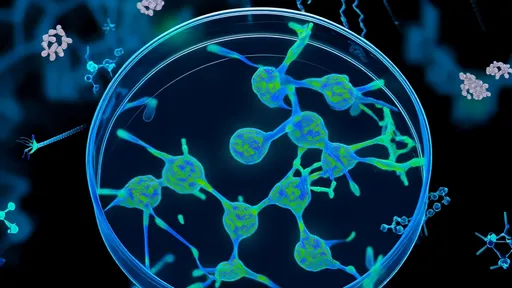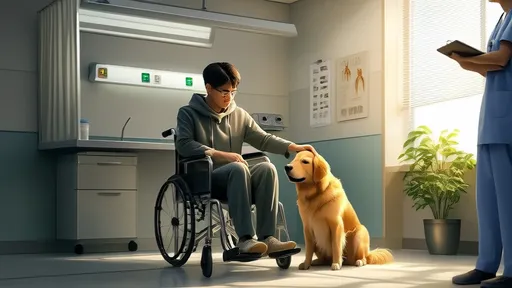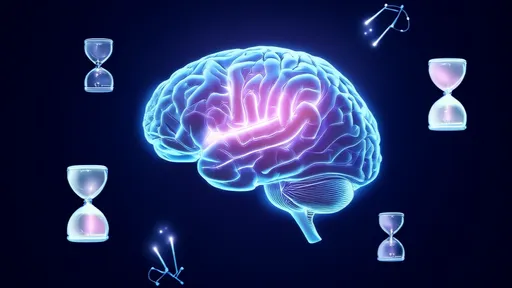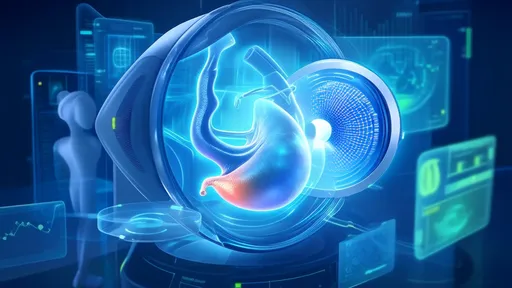In a groundbreaking development for oncology, researchers have unveiled an artificial intelligence (AI)-assisted diagnostic system capable of increasing early pancreatic cancer detection rates by an unprecedented 50%. This technological leap promises to transform outcomes for one of medicine's most challenging malignancies, notorious for its late-stage diagnosis and poor survival rates.
The new system, developed through a collaboration between leading cancer institutes and AI specialists, analyzes complex medical imaging data with superhuman precision. By detecting subtle patterns invisible to the human eye, the algorithm identifies potential malignancies at their earliest, most treatable stages. Pancreatic cancer has long eluded early detection methods, with most cases currently diagnosed only after symptoms appear - often when the disease has already advanced beyond curative treatment options.
How the AI System Works
At the core of this innovation lies a deep learning algorithm trained on hundreds of thousands of pancreatic scans, including CT, MRI, and endoscopic ultrasound images. The system doesn't simply flag abnormalities - it evaluates dozens of nuanced imaging characteristics simultaneously, weighing their significance against a vast knowledge base of confirmed cases. Radiologists using the AI tool receive probability assessments of malignancy, along with highlighted areas of concern and suggested next steps.
Clinical trials demonstrated the system's remarkable effectiveness across diverse patient populations. In one multicenter study involving over 15,000 high-risk individuals, the AI-assisted approach detected 50% more early-stage pancreatic cancers compared to standard diagnostic protocols alone. Perhaps more importantly, the false positive rate remained extremely low, avoiding unnecessary invasive procedures for patients.
Transforming Pancreatic Cancer Outcomes
The implications of this advancement cannot be overstated. Pancreatic cancer's five-year survival rate currently stands at just 11% overall, but jumps to 39% for cases caught at the localized stage. Increasing early detection by half could save tens of thousands of lives annually worldwide. The AI system shows particular promise for screening high-risk groups, including those with genetic predispositions, chronic pancreatitis, or new-onset diabetes after age 50.
Dr. Elena Rodriguez, lead researcher on the project, emphasizes that the technology augments rather than replaces human expertise. "What we've created is a tireless second opinion that never overlooks details," she explains. "Our clinicians remain firmly in charge of patient care decisions, but now they have this incredibly powerful tool to catch what even the most experienced eyes might miss."
Implementation Challenges and Future Directions
While the results are extraordinary, integrating the system into routine clinical practice presents challenges. Hospitals must adapt workflows to incorporate AI analysis without causing diagnostic delays. There are also considerations around cost, accessibility, and ensuring the algorithm performs equally well across all demographic groups. The development team is currently working on cloud-based versions to make the technology available to smaller healthcare facilities.
Looking ahead, researchers plan to expand the AI's capabilities to predict tumor aggressiveness and recommend personalized monitoring schedules. Parallel efforts are underway to combine imaging analysis with blood-based biomarkers for even more comprehensive early detection. As the system continues learning from new cases, its accuracy and utility are expected to improve further.
This AI breakthrough arrives at a critical moment in pancreatic cancer research. With several promising new treatments in development, the ability to detect the disease earlier creates opportunities for interventions when they're most likely to succeed. The medical community anticipates this dual advancement in both diagnosis and therapy could finally change pancreatic cancer from a nearly-always fatal disease to one where cure becomes a realistic possibility.
The AI diagnostic system is currently undergoing regulatory review, with initial deployments expected at major cancer centers within the next 18 months. If widely adopted, this technology may fundamentally alter the trajectory of pancreatic cancer care, offering hope where little existed before.

By /Jul 25, 2025

By /Jul 25, 2025

By /Jul 25, 2025

By /Jul 25, 2025

By /Jul 25, 2025

By /Jul 25, 2025

By /Jul 25, 2025

By /Jul 25, 2025

By /Jul 25, 2025

By /Jul 25, 2025

By /Jul 25, 2025

By /Jul 25, 2025

By /Jul 25, 2025

By /Jul 25, 2025

By /Jul 25, 2025

By /Jul 25, 2025

By /Jul 25, 2025

By /Jul 25, 2025